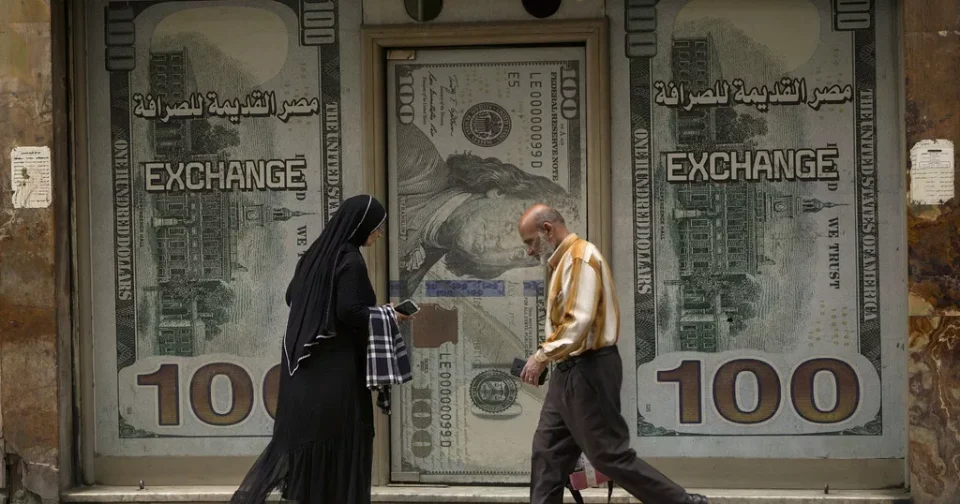FALCON POWERS – According to a report by experts from the International Monetary Fund (IMF), prepared for presentation at last month’s IMF Board meeting, Egyptian authorities have pledged to refrain from bypassing the Ministry of Finance and directly borrowing billions of dollars from the central bank.
Economic experts argue that such borrowing threatens to undermine the economy by increasing the money supply, leading to inflation and weakening the exchange rate against foreign currencies.
The report, parts of which were reviewed by Reuters, revealed that the Egyptian central bank lent up to 765 billion Egyptian pounds ($15.9 billion) to government institutions other than the Ministry of Finance until February 2023, in violation of the Central Bank Law of 2020. The report did not specify when these practices began. The Egyptian central bank, the Ministry of Finance, and the IMF did not immediately respond to Reuters’ requests for comment.
In a meeting held on March 29, the IMF Board of Directors approved an expansion of Egypt’s current loan program to $8 billion, citing the damage inflicted on the economy due to the crisis in Gaza. The approval came after weeks of Egypt and the United Arab Emirates signing an unprecedented $35 billion investment deal, which alleviates the foreign currency shortage crisis.
The IMF report mentioned that the central bank has not yet identified the borrowing institutions, adding that approximately 104 billion pounds have been repaid, and these institutions are paying interest on existing loans at the normal rate.
The report stated that “the authorities are committed to preventing new development lending to public institutions, except for the Ministry of Finance.”
- The New Capital and Army-Controlled Companies
The IMF report stated that Egypt will require public institutions to submit reports on investment spending to a committee at the level of the Council of Ministers, in order to control public sector spending within and outside the general budget.
This includes companies controlled by the Engineering Authority of the Armed Forces and the company overseeing the construction of the New Administrative Capital, which is being built in the desert east of Cairo at an estimated cost of around $58 billion in 2019.
The total public investment spending, including the spending outlined in the general budget, is expected to reach approximately 350 billion pounds in the first half of 2024 and around 1 trillion pounds in the fiscal year 2025/2024. This represents a significant decrease compared to previous years. The average inflation rate exceeded 30 percent last year.


